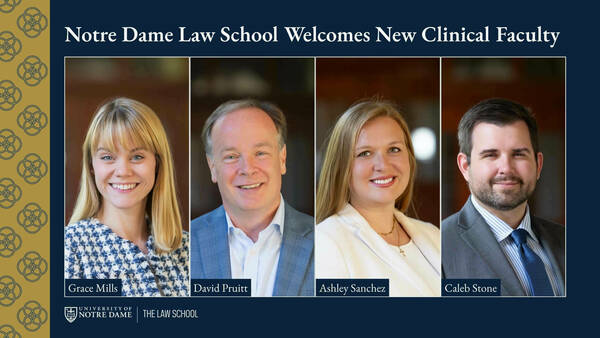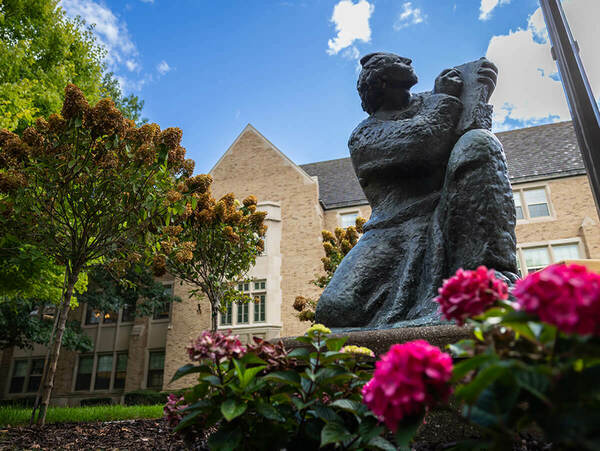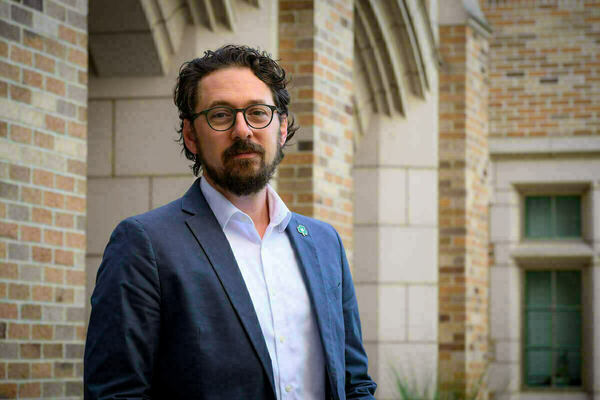Spring 2025 CI Compass Fellows complete program and give presentations about NSF Major Facility Data Lifecycles and Cyberinfrastructure
The 2025 U.S. National Science Foundation (NSF) CI Compass Student Fellowship Program (CICF) wrapped in April with 17 undergraduate fellows delivering final presentations about cyberinfrastructure challenges at four different NSF Major Facilities. Now in its fourth year, the program has provided real-world cyberinfrastructure experience to a total of 57 undergraduate students from 38 colleges and universities across the U.S.
The CICF Spring Program is a virtual training program that combines live and asynchronous instruction, focusing on technical skills and the data lifecycle within the context of NSF Major Facilities. Its purpose is to introduce undergraduate students to skills and tools that Major and Mid-scale research facilities use to process data. During the Data Lifecycle Component, students learn a data lifecycle model that identifies and works within stages of data flow in research facilities, starting from where data is captured to making the processed data available for scientists, educators, students, and the public. The Technical Skills Component introduces students to software engineering, scientific programming, cloud computing, data archives, data workflows, and the concept of FAIR (Findable, Accessible, Interoperable, and Reusable) data.
The fellows were divided into four groups and applied what they had learned about the data lifecycle and processes at major research facilities. Each group was assigned a different NSF Major Facility, with contacts at each to interview with more in-depth questions. On April 8 and 10, 2025, the four groups presented their findings to peers, instructors, and cyberinfrastructure (CI) ecosystem partners about the data lifecycle of each facility.

“We were thrilled to have CI partners from the facilities sitting in to listen and interact with the fellows’ presentations. Some noted that they learned something new from the students’ work,” said Angela Murillo, director of the CICF program, and co-principal investigator of NSF CI Compass. “Throughout the program, we want to make sure the fellows are inspired by and connected to facilities and experts, so that they can learn more about how cyberinfrastructure professions serve a broader NSF science mission.”
Group 1 presented their findings on the NSF National Solar Observatory (NSO). Group 1 included:
- Ejay Aguirre, University of Utah
- Macy Callahan, Creighton University
- Aidan Kenney, University of Massachusetts Amherst
- Emma Stubby, University of Oklahoma




Group 2 presented their findings on the NSF Geodetic Facility for the Advancement of Geoscience (GAGE). Group 2 included:
- Spoorthi Hiriyur Kirankumar, North Carolina State University
- Catherine Larson, Creighton University
- Elikem Kalitsi, Spelman College
- Dylan Hermosillo, The University of Arizona




Group 3 presented their findings on the NSF National Ecological Observatory Network (NEON). Group 3 included:
- Baydan Hussen, Tufts University
- Tamara Segal, University of Connecticut
- Naomi Kolodisner, The University of Arizona
- Joanna Chimalilo, Texas Tech University




Group 4 presented their findings on the NSF National Center for Atmospheric Research (NCAR). Group 4 included:
- Jasmine (Jazzy) Turner, University of Utah
- Priscilla Zavala, Ball State University
- Xiuwen (Nora) Zhu, City University of New York - Brooklyn College
- Anshuraj Sedai, Caldwell University
- Rishi Jain, University of Southern California





The student presentations can be viewed here:
Several 2025 CICF Spring fellows have gone on to participate in the Summer Program, where they have the opportunity to embed with NSF Major Facilities and CI-ecosystem partners in virtual and on-site opportunities. By applying the knowledge gained from the Spring Program to a working and learning environment, the goal is to introduce the CI career track to students as they navigate their undergraduate education and make decisions about their future careers. The students give a presentation at the end of the summer, for the CICF Student Summer Symposium, where they describe their summer experiences.
The application process for the 2026 Spring CICF Program will open on September 10, 2025. To learn more about CICF and find information on how to apply, please visit CI Compass Student Fellowships.
About CI Compass
CI Compass is funded by the NSF Office of Advanced Cyberinfrastructure in the Directorate for Computer and Information Science and Engineering under grant number 2127548. Its participating research institutions include the University of Southern California, Indiana University, Texas Tech University, the University of North Carolina at Chapel Hill, the University of Notre Dame, and the University of Utah.
To learn more about CI Compass, please visit ci-compass.org.
Contact: Christina Clark, Research Communications Specialist
CI Compass / Notre Dame Research / University of Notre Dame cclark26@nd.edu / 574.631.2665
Originally published by at ci-compass.org on August 05, 2025.
Latest Research
- ND research teams awarded funding to address sustainability challenges around the worldNotre Dame's Just Transformations to Sustainability Initiative has awarded funding to three cross-disciplinary faculty teams leading research on pressing sustainability issues—including forest conservation in the Amazon, watershed…
- Fighting to improve hurricane forecastsResearchers at Notre Dame are improving hurricane forecast accuracy, giving officials time to evacuate and protect residents. Read the article
- 2025 Naughton Fellowships awarded to four joint faculty projectsThe University of Notre Dame’s Naughton Fellowship program has announced its faculty awardees for the 2025-2026 cohort. Faculty from leading Irish universities and Notre Dame have come together to work on four research projects as a part of the Naughton Faculty…
- Notre Dame Law School Welcomes Four New Clinical Faculty Members for 2025–26Notre Dame Law School is pleased to welcome four new clinical faculty members for the 2025–26 academic year. “It is an honor to welcome such a distinguished group of clinical professors to Notre Dame Law School. Their impressive achievements and deep sense of vocation will enrich our academic…
- Six early-career scholars join the inaugural Provost’s Postdoctoral Fellowship Program.Six interdisciplinary scholars have joined the College of Arts & Letters at the University of Notre Dame to continue their research, obtain invaluable support, and engage in professional development as part of the inaugural Provost’s…
- Politics inspired Democracy Initiative managing director from early ageThis is the first in a series of features highlighting the managing directors of the University's strategic initiatives. The managing directors are key (senior) staff members who work directly with the faculty directors to help implement and operationalize the vision for the initiatives, oversee initiative staff, and serve as thought partners for the faculty directors.











